11 Muslim inventions that shaped the modern world
From algebra to coffee, here are a few notable innovations that are accredited to Muslims around the world
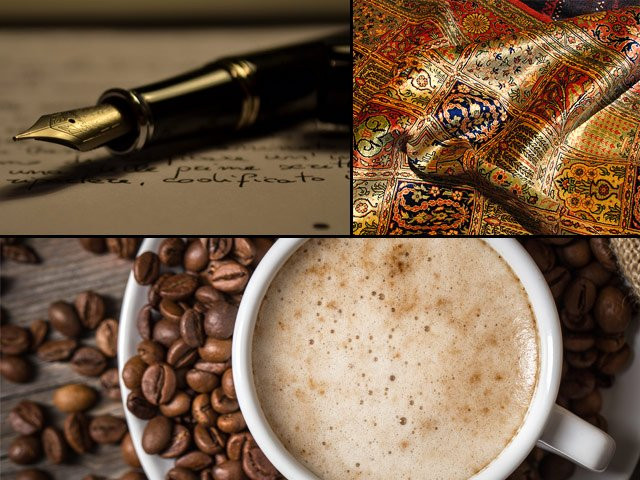
From algebra to coffee, here are a few notable innovations that are accredited to Muslims around the world. PHOTO: FILE
From algebra to life-saving surgeries, here's a look at the remarkable contribution Muslims have made in the world with innovations that are still used today.
1. Coffee
 PHOTO: BESTANIMATIONS
PHOTO: BESTANIMATIONSYes, you can thank Muslims for waking up to that wafting smell of freshly brewed coffee in the morning. This daily essential was first made in Yemen in the 9th century. Initially, coffee was used by Sufis who needed the caffeine for their late nights of worship. From Yemen, it traveled to Cairo where it spread across the empire. It wasn't until the 16th century, when a Venetian trader brought coffee beans to Italy, that Europe caught up.
2. Hospitals
 SOURCE: TUMBLR
SOURCE: TUMBLRProfessor Salim al-Hassani, Chairman of the Foundation for Science, Technology and Civilisation and editor of book 1001 Inventions, tells CNN, "Hospitals as we know them today, with wards and teaching centers, come from 9th century Egypt." The first medical centre was the Ahmad ibn Tulun Hospital, founded in 872 in Cairo, with the purpose to provide free medical assistance to anyone who needed it.
3. Tootbrush
 PHOTO: CASSIFLINT
PHOTO: CASSIFLINTThe saviour to morning breath -- the idea of a toothbrush stemmed from miswak which was what Prophet Mohammed (pbuh) used to clean his teeth and freshen his breath with.
Hassani tells CNN that the Prophet (pbuh) used a twig from the miswak tree for his dental hygiene, and substances similar to miswak are now used to make modern day toothpaste.
4. Algebra
 SOURCE: TUMBLR
SOURCE: TUMBLRMany share a love-hate relationship with it, but since its introduction, algebra has helped scientists all over the world.
Al-Khwarizmi, a Persian mathematician is known as the developer of modern day algebra. He was also the first to introduce the concept of raising a number to a power.
5. University
 PHOTO: TELEGRAPH.CO.UK
PHOTO: TELEGRAPH.CO.UKThe first degree-granting university was founded by Muslim princess Fatima al-Firhi, in Fez, Morocco in 859 CE. It was essentially a madrasa which is now known as the University of Qarawiyyin.
This centre is still running 1,200 years later, and Hassani hopes that this will continue to inspire young women around the world. The university is sometimes dubbed as the "world's oldest university".
6. Medicine
 PHOTO: HASBROCHILDRENSHOSPITAL.ORG
PHOTO: HASBROCHILDRENSHOSPITAL.ORGDoctor al-Zahrawi was an Arab physician and surgeon who published a 1,500 page illustrated encyclopedia of surgery almost 1000 years ago. For five centuries, his encyclopedia was used as a reference in Europe.
Al-Zahrawi is also responsible for inventing the first pair of forceps, and is reported to have performed the first cesarean operation.
His pioneering contributions to the field of surgical procedures and instruments had an enormous impact in the East and West well into the modern period, where some of his discoveries are still applied in medicine to this day.
7. Musical instruments
 SOURCE: ALCHEMYPRIME.NET
SOURCE: ALCHEMYPRIME.NETMusical innovation owes a lot to Muslims, as many musical instruments reached Europe from the Middle East. Among these are the lute and rubab, an ancestor of the violin. The Arabic lute was a predecessor of the guitar.
8. Optics
 SOURCE: PINTEREST
SOURCE: PINTERESTHassani claims, "Many of the most important advances in the study of optics come from the Muslim world."
Ibn al-Haitham, around the year 1001, disproved theories of Euclid and Ptolemy which claimed that light was emitted from our eyes in order for us to see.
He discovered that humans see due to light reflecting off objects and entering the eye. This theory was later used to invent the camera. He also discovered the relationship between the optic nerve and the brain, which explains why we don't see images upside down.
9. Flying
 SOURCE: GIPHY.COM
SOURCE: GIPHY.COM"Abbas ibn Firnas was the first person to make a real attempt to construct a flying machine and fly," said Hassani. He designed a winged apparatus in the 9th century. This apparatus resembled a bird, and Firnas used it to successfully fly in the air for a few seconds before it fell to the ground, hurting his back.
His model is said to have inspired Leonardo Da Vinci with his flying machine designs and inventions.
10. Carpet weaving
 SCREENGRAB
SCREENGRABMuslims were known for their advanced weaving skills in the 2nd-3rd BC, which resulted in carpet weaving. Medieval Muslims believed that carpets were a part of Paradise. It wasn't until much later that Arabian and Persian carpets were introduced in England.
11. Fountain Pen
 PHOTO: WORDPRESS
PHOTO: WORDPRESSIn 953, the Sultan of Egypt demanded a pen be made that would not leak on his hands and clothes. The pen invented for the sultan contained a reservoir filled with ink, that reached the nib of the pen with the help of a capillary as well as gravity, just like fountain pens today.

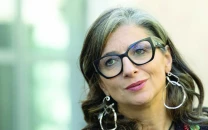


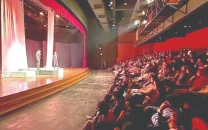
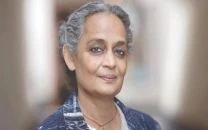
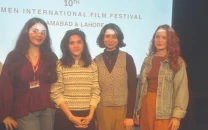












COMMENTS
Comments are moderated and generally will be posted if they are on-topic and not abusive.
For more information, please see our Comments FAQ